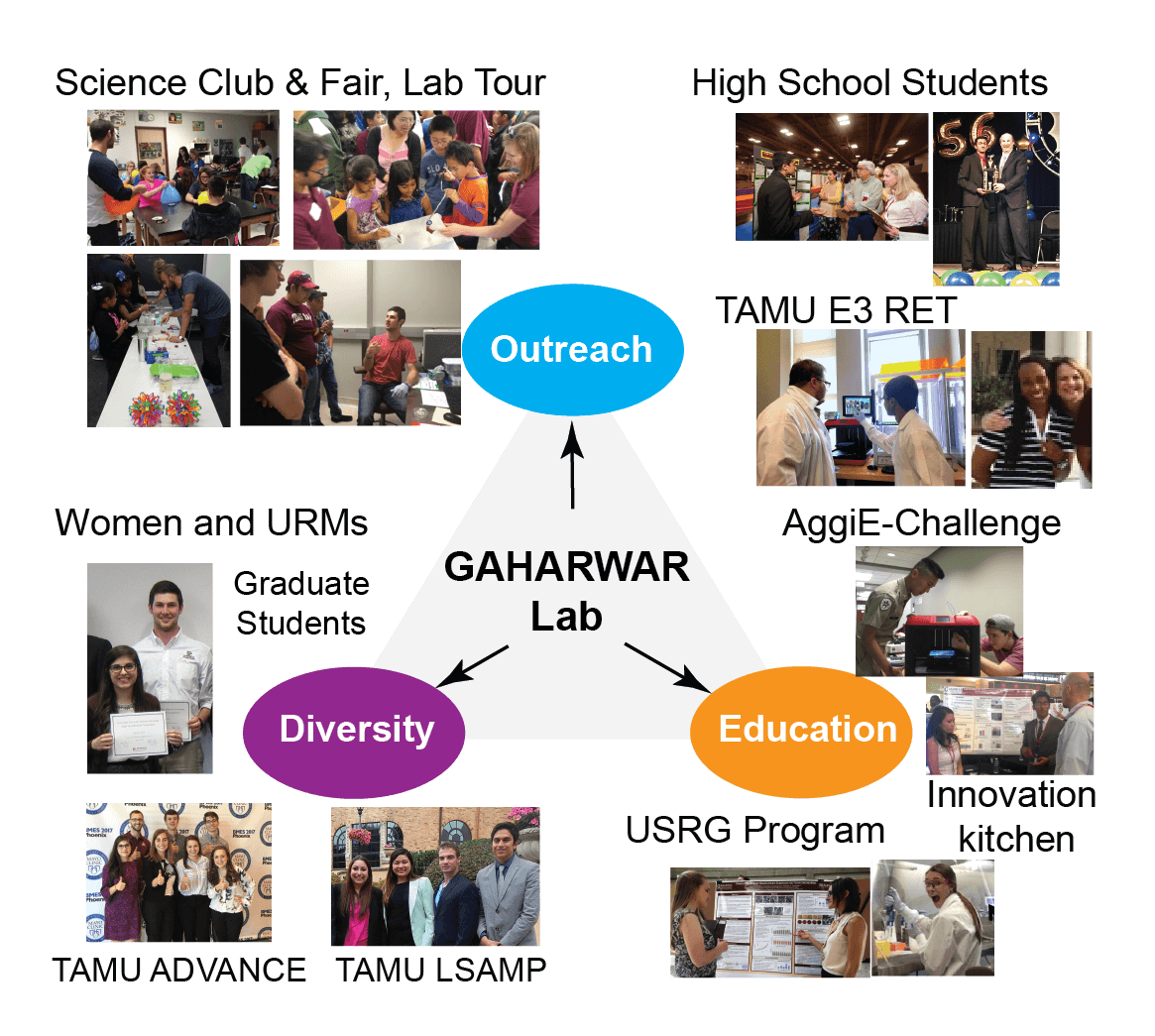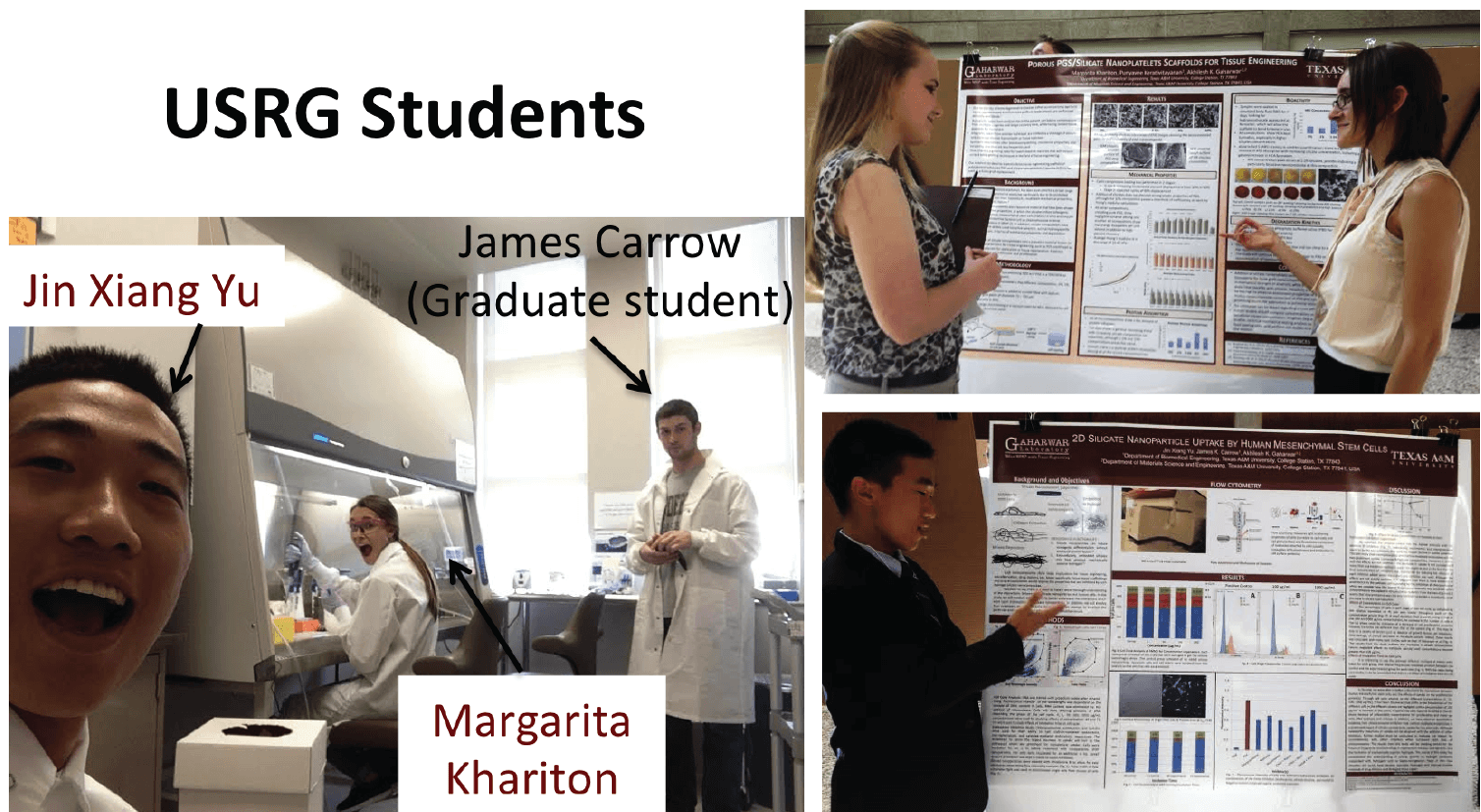Educational, Outreach and Diversity Activities
Our educational goal is to make interactive inquiry based learning permeate throughout the underprivileged middle and high schools in Texas and to grow the infrastructure of US engineers with strong disciplinary competence in bioengineering and additive manufacturing. Our educational and outreach activities are integrated with research through a common focus on the importance of biomaterials design in regenerative engineering. We have leveraged existing programs and infrastructure at TAMU to bring aspects of his research in biomaterials, 3D printing, and nanomaterials to students, teachers, and society-at-large. We have also developed a strong educational program integrating the following activities with our research group:

K-12 and STEM Education
Advancing STEM literacy through a diverse array of K-12 outreach programs that engage local schools (Science Club), and after-school programs (Science Fair) to enhance student understanding and appreciation of STEM subjects. The graduate students in the PI’s lab volunteer at local middle schools once a month for their science club meeting. Mentored multiple high school students, and provided them with hands-on experience with bioinks and 3D printing. These high school students received multiple awards based on their research in the Gaharwar lab.
Research for High School Teachers and Students
We also hosted high school teachers in our lab over last six years though TAMU E3 RET program and worked with them to integrate biomedical research into their high school math and science curricula. TAMU E3 RET is a former NSF RET Site supported by the TAMU to bring high school STEM teachers for 2.5 weeks to learn about engineering research and develop an engineering project for classroom implementation.


Undergraduate Researcher
Engaged in multidisciplinary-team based undergraduate programs (such as AggiE-Challenge and the Innovative Kitchen) and mentored more than 20 undergraduates (including 5 women, and 3 Hispanics) from various disciplines (e.g., mechanical, chemical, computer science). The AggiE Challenge program, developed by the Dwight Look College of Engineering, and Innovative Kitchen, developed by the Center for Cell and Organ Biotechnology (CCOB), focuses on providing knowledge and skills to undergraduate students for multidisciplinary teamwork, problem solving, and effective communication.

